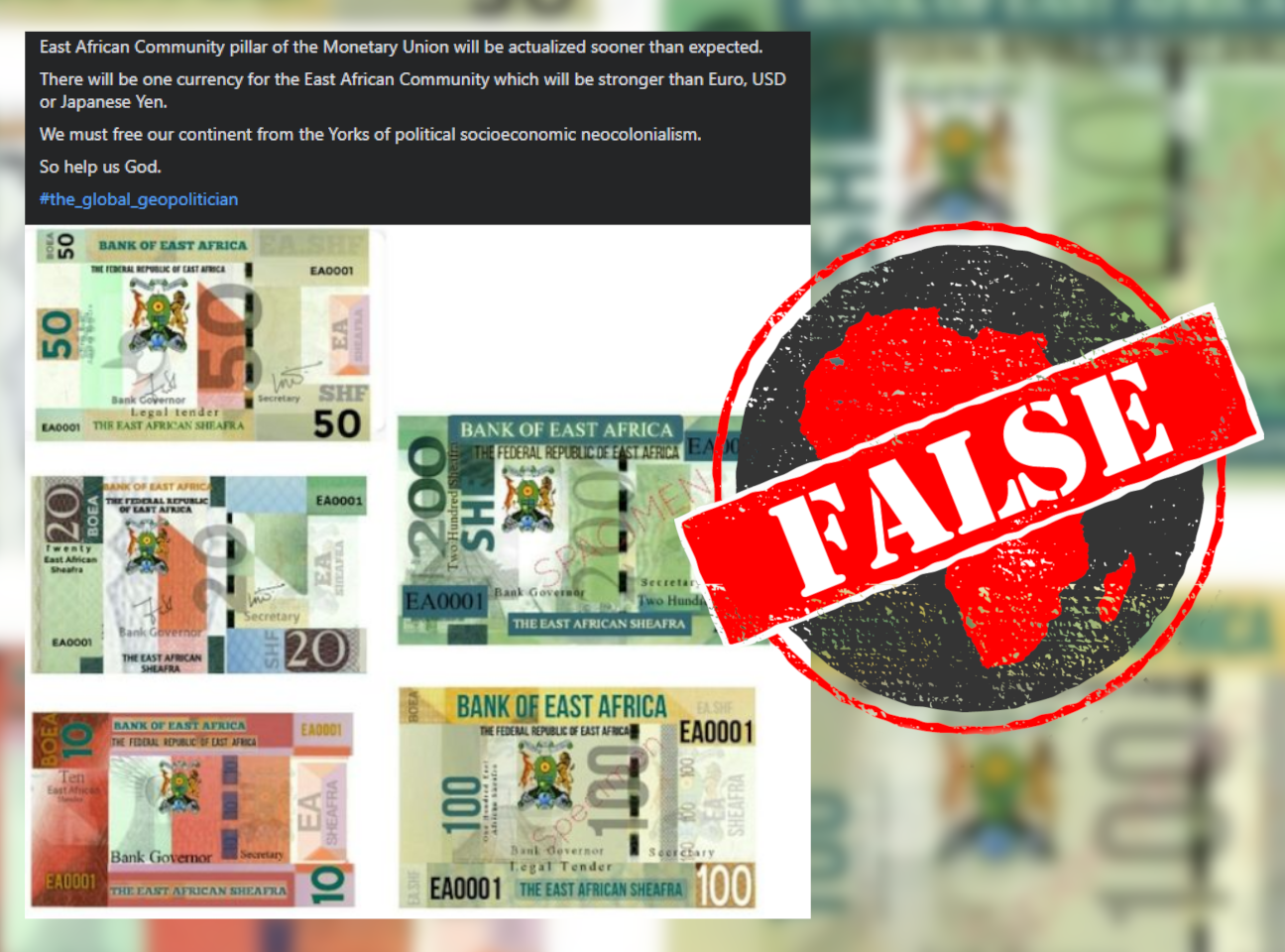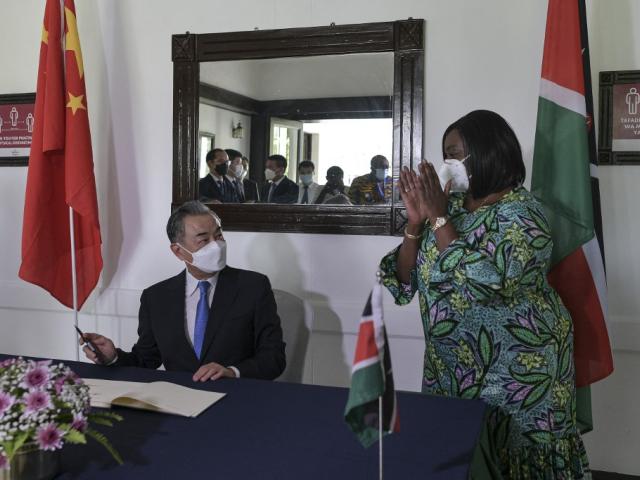IN SHORT: Images of bank notes have been widely shared claiming that the East African Community has introduced a new single currency. But the reports are false. Nothing of the sort has happened.
Posts on Facebook and X claim the East African Community (EAC), the regional political body comprising seven countries, has introduced new banknotes.
The posts include images of notes with the words “The East African Sheafra” printed on them and claim this currency has been issued by the “Bank of East Africa” in the “Federal Republic of East Africa”.
The images were first posted by an X account called “Government of East Africa”. But there’s no such government. The official Twitter account of the EAC is @jumuiya.
The EAC is made up of Kenya, Uganda, Tanzania, South Sudan, Rwanda, Burundi and the Democratic Republic of the Congo. Its headquarters are in Arusha, Tanzania. All these countries use different currencies issued by their own central banks. A “Bank of East Africa” that issues a single currency doesn’t exist.
Those who posted the images of the currency, in denominations between five and 200, claimed these were “specimen” of the “sheafra”, the supposed name of the new currency.
The images were posted here, here, here, here, here, here, here and here.
Has the regional body launched a single currency? We checked.

Ignore social media rumours
The EAC has said on its official Facebook account that there was no single currency yet.
“The journey to a single currency is still a work in progress,” the EAC secretariat said.
“Kindly ignore any rumours circulating in social media on the unveiling of new banknotes for the region,” the EAC added.
The regional body shared the images of the currency stamped “fake” and posted these on Facebook and X.
2031 deadline
Tanzania’s foreign minister, January Makamba, who is also in charge of the East African cooperation docket in his country, also dismissed the reports of a single currency.
He wrote on X: “Hizi taarifa si za kweli. Taratibu na vigezo vya kiuchumi na kitaasisi vya kufikiwa kwa Umoja wa Fedha (Monetary Union)/Sarafu Moja (Single Currency) kwa Jumuiya ya Afrika Mashariki bado kukamilika. Mapendekezo ni kufika hatua hiyo mwaka 2031. Ukurasa rasmi wa Jumuiya ni @jumuiya.”
Translated from Kiswahili, this means: “These reports are not true. The economic and institutional protocols and processes towards the realisation of a monetary union and the use of a single currency within the East African Community have not been concluded. The proposal on the table is for that to happen in 2031. The genuine page for the East African Community is @jumuiya.”
The EAC monetary union protocol signed in 2013 initially had a ten-year window, but the regional governments have extended the deadline, to roll it out by 2031.
There’s no single currency in East Africa. The images do not show genuine specimens of the “sheafra” issued by the “Bank of East Africa”.
Republish our content for free
For publishers: what to do if your post is rated false
A fact-checker has rated your Facebook or Instagram post as “false”, “altered”, “partly false” or “missing context”. This could have serious consequences. What do you do?
Click on our guide for the steps you should follow.
Publishers guideAfrica Check teams up with Facebook
Africa Check is a partner in Meta's third-party fact-checking programme to help stop the spread of false information on social media.
The content we rate as “false” will be downgraded on Facebook and Instagram. This means fewer people will see it.
You can also help identify false information on Facebook. This guide explains how.




Add new comment